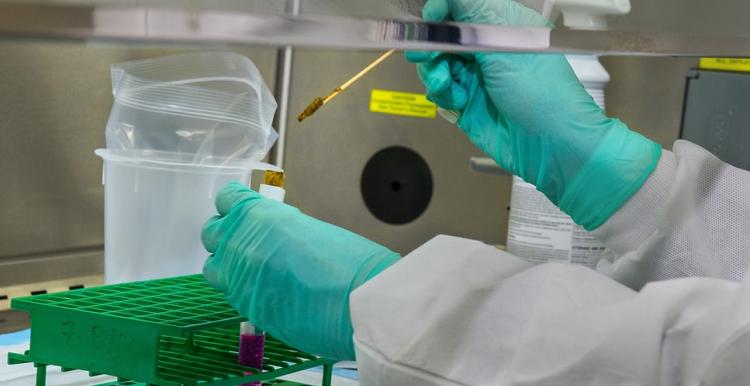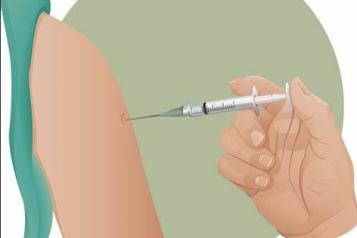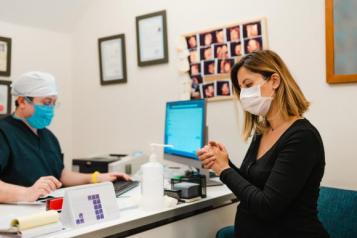Frequently asked questions about the COVID-19 vaccine

The following information is from Wigan CCG, accessed 5/1/21:
Is the NHS confident the vaccine is safe?
Yes. The NHS will not offer any Covid-19 vaccinations to the public until independent experts have signed off that it is safe to do so.
The MHRA, the official UK regulator, have said these vaccines are safe and highly effective, and we have full confidence in their expert judgement and processes.
As with any medicine, vaccines are highly regulated products.
There are checks at every stage in the development and manufacturing process, and continued monitoring once it has been authorised and is being used in the wider population.
The MHRA recommend that those with severe allergies to the ingredients of the vaccines should not receive them.
Why is it important to get your COVID-19 vaccination?
Getting your COVID-19 vaccination as soon as you can, should protect you and may help to protect your family and those you care for.
The COVID-19 vaccine should help reduce the rates of serious illness and save lives and will therefore reduce pressure on the NHS and social care services.
Why are second doses postponed?
The UK Chief Medical Officers have agreed a longer timeframe between first and second doses so that more people can get their first dose quickly, and because the evidence shows that one dose still offers a high level of protection. This decision will allow us to get the maximum benefit for the most people in the shortest possible time and will help save lives.
We recognise for some people a longer wait might be worrying, and clinicians have the discretion to vaccinate people sooner if they think this is needed. Getting both doses remains important so we would urge people to return for it at the right time.
Who gets the vaccine first?
The Joint Committee for Vaccination and Immunisation (JCVI) published its final advice on 2 December which can be found here: https://www.gov.uk/government/publications/prioritygroups-for-coronavirus-covid-19-vaccination-advice-from-the-jcvi-2-december2020/priority-groups-for-coronavirus-covid-19-vaccination-advice-from-the-jcvi-2-december-2020
The Government has confirmed that the vast majority of vaccinations administered in this initial phase will be prioritised for those 80 years of age and over, and care home workers.
Vaccinating services should therefore ensure any unfilled appointments are used to vaccinate healthcare workers, from across their local healthcare system, who have been identified at highest risk of serious illness from COVID-19. Healthcare providers have been undertaking staff risk assessments throughout the pandemic to identify such individuals.
How effective are the vaccines, and how long do they take to work?
The MHRA have said these vaccines are highly effective, but to get full protection people need to come back for the second dose – this is really important.
To ensure as many people are vaccinated as quickly as possible, the Department for Health and Social Care now advise that the second dose of both the OxfordAstraZeneca and the Pfizer/BioNtech vaccine should be scheduled up to 12 weeks apart.
Full protection kicks in around a week or two after that second dose, which is why it’s also important that when you do get invited, you act on that and get yourself booked in as soon as possible. Even those who have received a vaccine still need to follow social distancing and other guidance.
Is the vaccine safe for BAME communities?
The phase three study of the Pfizer BioNTech COVID-19 vaccine demonstrated a vaccine efficacy of 95%, with consistent efficacy across age, gender and ethnicity. Overall, among the participants who received the COVID-19 vaccine 82.1% were White, 9.6% were Black or African American, 26.1% were Hispanic/Latino, 4.3% were Asian and 0.7% were Native American/Alaskan.
I'm currently ill with coronavirus, can I get the vaccine?
People currently unwell and experiencing COVID-19 symptoms should not receive the COVID-19 vaccine until they have recovered.
I've already had COVID-19, should I still get vaccinated?
Yes, you should get vaccinated if you are in a priority group identified by JCVI. The MHRA have looked at this and decided that getting vaccinated is just as important for those who have already had Covid-19 as it is for those who haven’t.
There is no evidence of any safety concerns from vaccinating individuals with a past history of COVID-19 infection, or with detectable COVID-19 antibody, so people who have had COVID-19 disease (whether confirmed or suspected) can still receive the COVID-19 vaccine when it is their time to do so.
What are the vaccine ingredients? Is it vegan friendly?
A detailed review of the vaccines and their ingredients have been provided by the MHRA and can be found at the following links:
For the Pfizer/BioNTech vaccine information is available here: https://www.gov.uk/government/publications/regulatory-approval-of-pfizer-biontech-vaccine-for-covid-19
For the Oxford/AstraZeneca vaccine information is available here: https://www.gov.uk/government/publications/regulatory-approval-of-covid-19-vaccine-astrazeneca
The British Islamic Medical Association have produced a helpful guide for the Muslim community which can be found at https://britishima.org/pfizer-biontech-covid19-vaccine/
There is no material of foetal or animal origin in either vaccine. All ingredients are published in healthcare information on the MHRA’s website.
Are there any side effects?
These are important details which the MHRA always consider when assessing candidate vaccines for use.
For these vaccines, like lots of others, they have identified that some people might feel slightly unwell, but they report that no significant side effects have been observed in the tens of thousands of people involved in trials.
All patients will be provided with information on the vaccine they have received, how to look out for any side effects, and what to do if they do occur, including reporting them to the MHRA.
More information on possible side effects can be found at https://www.nhs.uk/conditions/coronavirus-covid-19/coronavirus-vaccination/coronavirus-vaccine/
Very common side effects include:
- Having a painful, heavy feeling and tenderness in the arm where you had your injection. This tends to be worst around 1-2 days after the vaccine
- Feeling tired
- Headache
- General aches, or mild flu like symptoms
As with all vaccines, appropriate treatment and care will be available in case of a rare anaphylactic event following administration.
What about the allergic reactions that have been reported?
These vaccines are safe and effective for the vast majority of people – they have been tested on tens of thousands of people and assessed by experts.
Any person with a history of immediate-onset anaphylaxis to the ingredients contained in the vaccines should not receive them. A second dose of the Pfizer/BioNTech vaccine should not be given to those who have experienced anaphylaxis to the first dose of Pfizer/BioNTech vaccination.
Everybody will also be screened for potential allergic reactions before getting vaccinated. All vaccinators will have the training they need to deal with any rare cases of adverse reactions, and all venues will be equipped to care for people who need it – just like with any other vaccine.
Will the COVID-19 vaccine protect me from the flu?
No, the COVID-19 vaccine will not protect you against the flu. If you have been offered a flu vaccine, please try to have this as soon as possible to help protect you, your family and patients from flu this winter.
It is not essential to leave time between the flu and Covid vaccine but it is recommended that there should be a gap of a week.
We would always encourage anyone who is eligible but not yet taken up their flu jab to do so as soon as possible.
Will the vaccine work against the new strain?
There is no evidence currently that the new strain will be resistant to the vaccines we have, so we are continuing to vaccinate people as normal. Scientists are looking now in detail at the characteristics of the virus in relation to the vaccines. Viruses, such as the winter flu virus, often branch into different strains but these small variations rarely render vaccines ineffective.
Can I pick which vaccine I want?
The vaccines that the NHS uses and in what circumstances will be decided by the MHRA. Both vaccines are classed as being very effective. The Oxford/AstraZeneca is easier to store and transport, meaning we can deliver them in more places, and we expect to have more doses available as they are manufactured in the UK, so we would expect that most people are likely to receive this vaccine over the coming weeks and months.
Any vaccines that the NHS will provide will have been approved because they pass the MHRA’s tests on safety and efficacy, so people should be assured that whatever vaccine they get, it is worth their while.
Can I get one privately?
No. Vaccinations will only be available through the NHS for the moment. Anyone who claims to be able to provide you with a vaccine for a fee is likely to be committing a crime and should be reported to the Police online or by calling 112.
What happens if I get the first jab but not the second?
Both vaccines have been authorised on the basis of two doses because the evidence from the clinical trials shows that this gives the maximum level of protection.
To ensure as many people are vaccinated as quickly as possible, the Department for Health and Social Care now advise that the second dose of both the Oxford/AstraZeneca and the Pfizer/BioNtech vaccine should be scheduled up to 12 weeks apart.
The evidence doesn’t show any risk to not having the second dose other than not being as protected as you otherwise would be. We would urge everyone to show up for both of their appointments for their own protection as well as to ensure we don’t waste vaccines or the time of NHS staff.
Are there any groups that should not get vaccinated?
People with history of a severe allergy to the ingredients of the vaccines should not be vaccinated.
The MHRA have updated their guidance to say that pregnant women and those who are breastfeeding can have the vaccine but should discuss it with a clinician to ensure that the benefits outweigh any potential risks.
Does the vaccine work on those taking immune suppressants?
Although the vaccine was not tested on those with very serious immunological conditions, the vaccine has been proven to be very effective and it is unlikely that the vaccine will have no effect at all on these individuals.
There may be a very small number of people with very complex or severe immunological problems who can’t make any response at all – but the vaccine should not do any harm to these individuals. Individuals meeting these criteria may want to discuss the vaccine further with their specialist doctor.
When will I or my family member get their vaccine?
People are being offered vaccinations in line with recommendations from the independent JCVI. The NHS are contacting people when it is their turn. People will need an appointment to get their vaccine; most people will be invited by letter from their GP practice or the national programme.
If you or your family member are in one of the current priority groups, they will be on our priority list and will get invited as soon as we have a vaccine for them over the coming weeks.
For more information, visit the Wigan CCG website:
Fraudulent COVID-19 vaccine calls:
We are aware that some people are receiving suspicious calls and text messages offering the COVID-19 vaccination.
To protect yourself and your family members from fraud and criminals, remember the following points.
- The vaccine is only available on the NHS for free to people in priority groups, and the NHS will contact you when it is your turn. Anyone offering a paid-for vaccine is committing a crime.
- The NHS will never ask you to press a button on your keypad or send a text to confirm you want the vaccine, and never ask for payment or for your bank details.
- At the moment we are also not making house calls to deliver or discuss the vaccine. Anyone offering this now is committing a crime.
If you receive a call you believe to be fraudulent, hang up. If you believe you have been the victim of fraud or identity theft you should report this directly to Action Fraud on 0300 123 2040. Where the victim is vulnerable, and particularly if you are worried that someone has or might come to your house, report it to the Police online or by calling 101.


